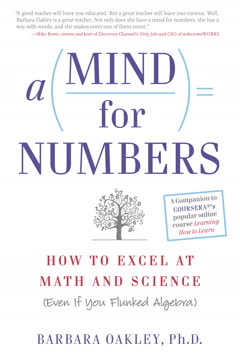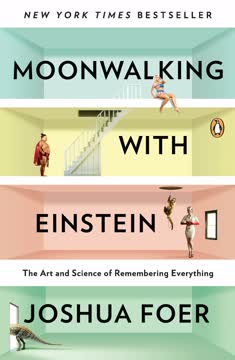重点摘要
1. 记忆冠军运用古老技巧实现非凡成就
“《阿德·赫伦尼乌姆》中介绍的技巧在古代世界广泛应用。”
古老智慧,现代应用。 记忆冠军运用的技巧可以追溯到古希腊和古罗马,特别是“地点法”或“记忆宫殿”技巧。这些方法曾被演说家和学者使用,如今已被改编用于现代记忆比赛。
非凡成果。 通过这些技巧,记忆运动员能够完成看似不可能的壮举,例如:
- 在一分钟内记住一副洗牌后的扑克牌顺序
- 在一次观看后回忆起数百个随机数字
- 学习并逐字背诵长篇诗歌或演讲
这些技巧在古代和现代的成功证明了经过适当训练和利用后,人类记忆的潜力是巨大的。
2. “记忆宫殿”技巧利用空间记忆增强回忆能力
“这个想法是创造一个在脑海中可视化的空间,一个你熟悉且容易想象的地方,然后用代表你想记住的内容的图像填充这个想象的地方。”
空间记忆作为框架。 记忆宫殿技巧利用了我们天生记忆空间信息的能力。通过将信息片段与熟悉空间中的特定位置关联,我们为回忆创建了一张心理地图。
生动的意象留下深刻印象。 有效记忆宫殿的关键要素包括:
- 使用熟悉的地点(例如,童年家、常走的路线)
- 创建生动、常常是奇特或夸张的图像来代表信息
- 在可视化过程中调动多种感官
- 定期回访和“维护”记忆宫殿
这一技巧将抽象信息转化为具体、易记的图像,显著增强了我们快速准确回忆大量数据的能力。
3. 有意识的练习,而非天赋,是发展专家记忆的关键
“我们所称的专业知识实际上只是‘在相关领域经过多年经验积累的庞大知识、基于模式的提取和规划机制’。”
通过努力获得专业知识。 作者从普通记忆到美国记忆冠军的旅程表明,卓越的记忆技能是培养出来的,而非与生俱来的。这与各个领域(从国际象棋到音乐)的专业知识研究相一致。
有意识练习的组成部分:
- 集中、目标导向的训练
- 及时反馈和错误纠正
- 超越舒适区
- 持续的长期承诺
记忆运动员和其他专家的成功挑战了自然天赋是卓越表现主要驱动力的观念。相反,它强调了专注和战略性练习在发展非凡技能中的力量。
4. 我们对外部记忆工具的依赖削弱了我们的自然记忆能力
“如今,我们重视快速和广泛阅读,这导致我们在阅读中产生一种肤浅感,以及在从书中获取信息时的浅尝辄止。”
技术的双刃剑。 尽管现代技术极大地扩展了我们获取信息的能力,但也减少了我们对内部记忆的依赖。这一转变可能削弱了我们深度学习和记忆的能力。
外部记忆的后果:
- 回忆基本信息的能力下降(例如,电话号码、方向)
- 与学习材料的参与度降低
- 可能失去与主动记忆相关的认知益处
作者认为,通过将记忆外包给外部设备,我们可能正在失去重要的认知技能以及在信息之间建立有意义联系的能力。
5. 改善记忆提升整体认知功能和生活质量
“记忆需要像灵活性、力量和耐力一样被教授为一种技能,以增强一个人的身体健康和幸福感。”
记忆作为认知健身。 发展记忆技能不仅仅是为了回忆事实;它还涉及增强整体的心理敏锐度和认知灵活性。改善记忆可以带来:
- 更好的问题解决能力
- 增强的创造力和创新能力
- 在各个领域的学习能力提升
现实世界的好处。 加强记忆技能可以积极影响生活的各个方面:
- 学业和职业表现
- 社交互动(例如,记住名字和面孔)
- 个人成长和终身学习
- 可能对抗认知衰退的保护作用
通过将记忆视为一种需要发展的技能,个人可以解锁更广泛的认知提升,从而改善整体生活质量和心理表现。
6. 记忆艺术曾是教育和智力追求的核心
“曾几何时,思考的唯一用途就是记住它们。”
历史意义。 在印刷术普及之前,记忆对于知识的保存和传播至关重要。记忆艺术是古典和中世纪教育的基本组成部分,塑造了人们的学习和思维方式。
教育重点的转变:
- 从记忆到分析和创造力
- 强调外部信息来源
- 关于死记硬背在现代教育中角色的辩论
作者认为,尽管从纯粹记忆的转变带来了好处,但我们可能在这个过程中失去了宝贵的认知工具。将记忆技巧重新融入教育中,可能会增强学习效果和认知发展。
7. 自闭症天才挑战我们对人类记忆潜力的理解
“正如特雷费特所说,‘每个大脑中可能都隐藏着一个小雨人’。”
不太可能个体中的非凡能力。 自闭症天才症候群是指那些有发展障碍的个体在特定领域(通常包括记忆)表现出卓越技能的现象,这挑战了我们对人类认知潜力的理解。
自闭症天才研究的启示:
- 所有大脑中潜在能力的可能性
- 脑损伤或非典型发展在解锁技能中的作用
- 即使在天才中,专注注意力和练习的重要性
尽管自闭症天才的能力是罕见的,且通常伴随重大挑战,但它们表明人类大脑可能具有未被开发的非凡记忆和认知技能。这种潜力可能通过特定的训练或在某些条件下获得。
8. 记忆技巧可以应用于现实学习和职业成功
“马修斯相信,记忆艺术将是他的学生走出九成学生在阅读和数学上低于平均水平的社区的通行证。”
实际应用。 记忆技巧不仅仅适用于比赛;它们可以成为教育和职业发展的强大工具。例子包括:
- 学生利用记忆宫殿掌握学科知识
- 职业人士运用技巧记住客户信息或在没有笔记的情况下演讲
- 语言学习者使用助记法更快地掌握词汇
更广泛的认知益处。 除了单纯的回忆,记忆技巧还可以增强:
- 批判性思维和分析能力
- 创造力和问题解决能力
- 学习中的自信心和自我效能感
通过将记忆技巧融入教育和职业培训,个人可以克服学习挑战,在各个领域取得更大成功。
9. 记忆的未来:平衡技术与认知增强
“拥有所有那些本该失去的知识触手可及,这意味着什么?”
技术增强。 可穿戴设备和脑机接口等技术进步,承诺将我们的记忆能力扩展到生物极限之外。
潜在的未来发展:
- 外部和内部记忆的无缝整合
- 通过人工智能辅助增强回忆
- 直接神经接口用于信息存储和提取
伦理和哲学考量:
- 在增强记忆的时代,个人身份的本质
- 全面记忆记录的隐私问题
- 忘记在人类心理和社会中的价值
随着我们迈向一个技术增强记忆的未来,平衡扩展认知能力的好处与保护基本人类体验和价值观至关重要。挑战在于利用技术来补充,而不是取代我们自然的认知能力。
最后更新日期:
FAQ
What's Moonwalking with Einstein about?
- Memory Techniques Exploration: The book follows Joshua Foer's journey to enhance his memory, leading to his participation in the U.S. Memory Championship. It focuses on memory techniques like the method of loci, or memory palace.
- Personal and Historical Insights: Foer combines his personal experiences with historical anecdotes, such as the story of Simonides of Ceos, who is credited with inventing the memory palace technique.
- Cultural Commentary: The narrative examines how modern technology affects our memory, arguing that reliance on external devices has diminished our natural memory capabilities.
Why should I read Moonwalking with Einstein?
- Engaging Narrative: Foer's writing is both informative and entertaining, making complex memory concepts accessible to a general audience.
- Practical Techniques: The book offers practical memory techniques, like the memory palace method, which can be applied in everyday life to enhance learning and retention.
- Thought-Provoking Themes: It raises questions about the nature of memory and its role in our lives, encouraging readers to reflect on their own memory practices.
What are the key takeaways of Moonwalking with Einstein?
- Memory is Trainable: Foer demonstrates that memory can be improved with practice and the right techniques, transforming from an average memorizer to a champion.
- Memory Palace Technique: The method of loci is a central theme, involving visualizing a familiar place and associating items to remember with specific locations.
- Cultural Shift in Memory: The book discusses how writing and technology have changed our relationship with memory, leading to a decline in natural memory abilities.
What are the best quotes from Moonwalking with Einstein and what do they mean?
- “Memory is the mother of all wisdom.”: This quote highlights the foundational role of memory in acquiring knowledge and wisdom.
- “The brain is like a muscle.”: This analogy suggests that mental exercises can enhance memory, similar to how physical exercise strengthens muscles.
- “The art of memory is the art of attention.”: It emphasizes that effective memorization requires focus and mindfulness.
What memory techniques does Joshua Foer discuss in Moonwalking with Einstein?
- Method of Loci: This technique involves visualizing a familiar space and placing items to remember along a mental journey through that space.
- Chunking: Foer explains how chunking information into manageable units can improve memory retention by grouping related items together.
- Elaborative Encoding: Transforming mundane information into vivid, memorable images by engaging multiple senses and creating emotional connections.
How does technology affect our memory, according to Moonwalking with Einstein?
- Reliance on External Aids: Foer argues that modern technology, like smartphones, has led to a decline in our natural memory abilities.
- Cultural Shift: The shift from oral to written culture has changed our relationship with memory, making us less reliant on our own memories.
- Memory as Identity: Memory is integral to our sense of self, and its erosion due to technology raises questions about our understanding of ourselves.
What is the memory palace technique mentioned in Moonwalking with Einstein?
- Visualizing Locations: The technique involves associating information with specific locations in a familiar place for easier recall.
- Creating Vivid Images: By placing memorable images in these locations, one can navigate through the palace to retrieve stored information.
- Historical Roots: This method has been used by orators and scholars for centuries to enhance memory.
How does Foer describe the process of memorizing a deck of cards?
- Using the PAO System: Foer uses the Person-Action-Object system, where each card is represented by a unique image of a person performing an action on an object.
- Memory Palaces for Recall: He places these images in a memory palace, allowing him to visualize the sequence of cards.
- Practice and Speed: Through rigorous practice, he improves his speed and accuracy, eventually breaking the U.S. record for memorizing a deck of cards.
How does Foer’s personal journey reflect the themes of Moonwalking with Einstein?
- Transformation Through Practice: Foer’s journey from an average memorizer to a U.S. Memory Champion exemplifies the theme that memory can be trained and improved.
- Exploration of Identity: His quest to enhance his memory becomes a metaphor for understanding oneself and one’s place in the world.
- Cultural Commentary: Foer critiques modern society's relationship with memory, highlighting the tension between technological reliance and personal memory.
What challenges does Foer face in improving his memory?
- Initial Struggles: He encounters difficulties in mastering memory techniques, particularly when trying to memorize poetry.
- Time and Effort: Training his memory requires significant time and dedication, which can be exhausting.
- Self-Doubt: Foer grapples with self-doubt and the fear of not measuring up to elite memory competitors.
How does Moonwalking with Einstein connect memory to broader cultural themes?
- Memory and Identity: Foer argues that memory is fundamental to our sense of self and cultural identity.
- Historical Context: The narrative situates memory techniques within a historical framework, illustrating their evolution over time.
- Critique of Modernity: The book critiques the impact of technology on memory, suggesting that reliance on external aids has diminished our natural abilities.
What does Joshua Foer ultimately conclude about memory and its importance?
- Memory Shapes Identity: He emphasizes that memory is integral to our sense of self and how we navigate the world.
- Need for Mindfulness: Foer advocates for a mindful approach to memory, encouraging readers to engage with their experiences.
- Resistance to Forgetting: The book calls for embracing the art of memory as a vital human skill in a technology-driven world.
评论
《与爱因斯坦共舞》讲述了约书亚·福尔成为记忆冠军的旅程,探讨了如记忆宫殿等技巧。读者们发现这本书引人入胜且富有信息量,赞扬福尔的写作风格以及对记忆历史和潜力的独到见解。有些人认为书中缺乏实用性,而另一些人则受到启发,尝试这些技巧。评论家指出,这本书的范围广泛,涵盖了历史、科学和个人叙述。总体而言,评论者欣赏这本书在娱乐性和教育性之间的结合,尽管对其持久影响的看法各不相同。
Similar Books









